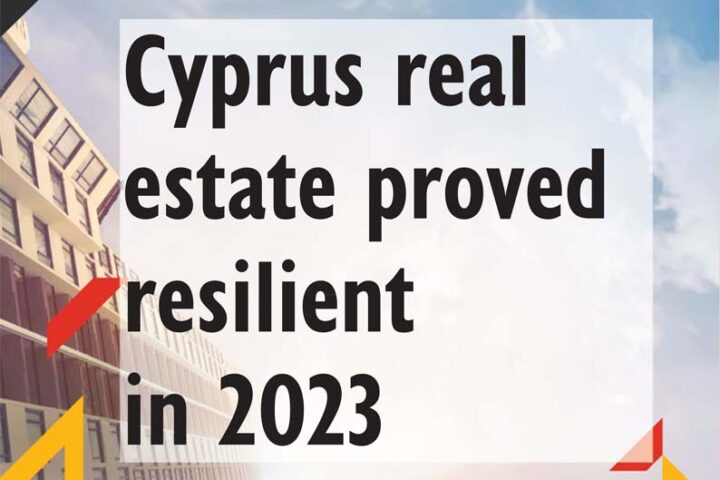We tend to think that Cyprus has a problematic legal system with the result that in addition to the time it takes to secure a court decision, those in the wrong get away with it most of the time.
The above situation is quite correct in its generality, but Cyprus is not alone.
In more advanced countries, such as the UK, with a model legal system which other countries follow (including Cyprus), delays in the legal procedures are causing exploitation of the system by those “in the know” – lawyers/tenants/bailiffs or otherwise.
Regarding landlords and tenants in a dispute, it is all the worse.
A recent Cyprus court decision that the tenant may not pay even if they agree with the prevailing rent be it not the differentiation of the amount, is a disaster for property owners.
The recent amendment to the statutory law helps regarding the unacceptable statutory tenants.
Added confusion is caused by another Supreme Court decision redefining what is a statutory property, making the relationship between landlords and tenants even more confusing.
To start legal procedures for eviction, the suing party must serve a court summons through a court bailiff.
This is not as easy as it sounds since the party in the wrong hides from the bailiffs, and it might take months to be found and served.
In a recent case that we were involved, the tenant had his whole family covering for him, including his workplace, and our imaginative bailiff cut the electricity supply to the property; when the tenant went to check his electricity meter, the bailiff was there waiting.
Why is serving them through email/post not acceptable?
Imagine the situation where the tenant is out of the country; how can they be served?
In the meantime, since it might take 2-3 years to secure a court decision, the tenant stays in the unit rent-free, not paying common expenses (for which the landlord is responsible) and treats the place as a slum.
End result, the landlord, in the event of getting back the property, needs a substantial amount of money to do up the place.
Some tenants, upon eviction, steal the unit’s installations (in one case, all ceiling fans/TV/cooker), whereas most landlords prefer to discount the due rents to get rid of them (or even pay the tenant to get them out).
Financial ruin
This could be a loss on one’s investment, but there are more serious cases regarding social and financial side effects.
The rental income expected, which might go towards the landlord’s debts, and children’s schooling, is affected, and even some landlords have financial problems with the banks.
A mess indeed, but we are not alone in our archaic system.
At least in the UK, notwithstanding the slum tenants’ situation, they seem to get away with it for 2-3 years and no more.
There was a case in the UK where the financier foreclosed on another landlord’s property due to the non-payment of instalments (the second property was in Spain, a holiday house).
The more recent one was a landlord’s suicide who had nowhere to live, including non-paying his loans.
A Cypriot who inherited his house in the UK let it out and discovered that the whole house and garden (including the loft) were being used for narcotic plant growth.
“Just as well I am not accused for it, whereas the repair of the house runs into thousands not covered by the insurance,” the desperate Christakis told us.
In another UK case, the tenant had kennels in the property’s large garden for dog breeding (20 dogs), but it took the owner four years to evict the tenant.
Landlords are not angels by any means – there is indifference, a lack of repair, and not addressing the issues promptly.
Letting an apartment to a company that duly passed the occupation to his foreign employees (eight) in an apartment of 2-bed capacity is a case in hand.
The property owner knew about the eight tenants and charged the tenants another €50/each person.
The case became known when the other apartment tenants complained to the police, they duly vacated, and we suspect that these foreign residents are workers without a permit or undocumented immigrants.
This case is one of the reasons that the proprietor can get an eviction order (overcrowding/ health risk), but one needs the local authority’s support and certification.
In a recent case, the tenant rented the house to host private parties (charging the participants €5/p.p entrance fee, plus drinks cost).
The police said it needed proof.
So, the landlord installed a CCTV which showed the gatherings.
Police said there was an intrusion of the tenant’s privacy and did not want to get involved.
Yet, at the same time, if something happens in a neighbourhood, the police are the first to visit the neighbours who could help, however with the possible provision of CCTV videos.
The invasion of privacy apart, the availability of such videos resulted from arrests for the Ayia Napa shooting and the Onasagorou stabbing.
By Antonis Loizou FRICS – Antonis Loizou & Associates EPE – Real Estate Valuers, Estate Agents and Property Consultants










